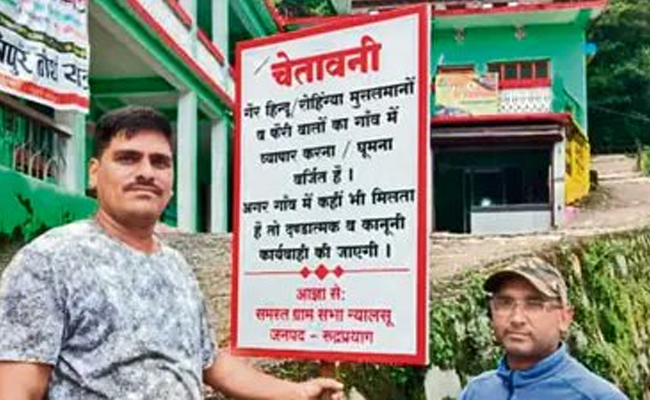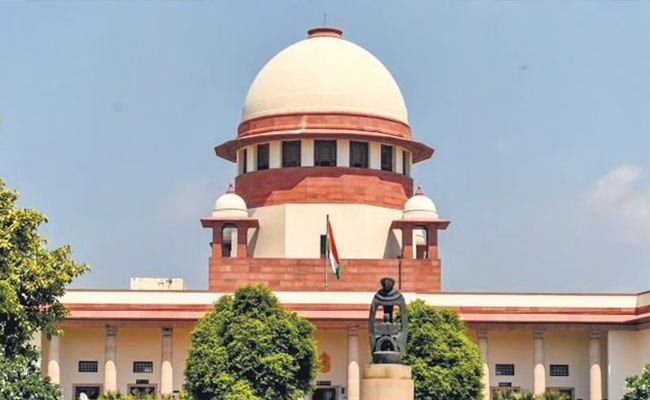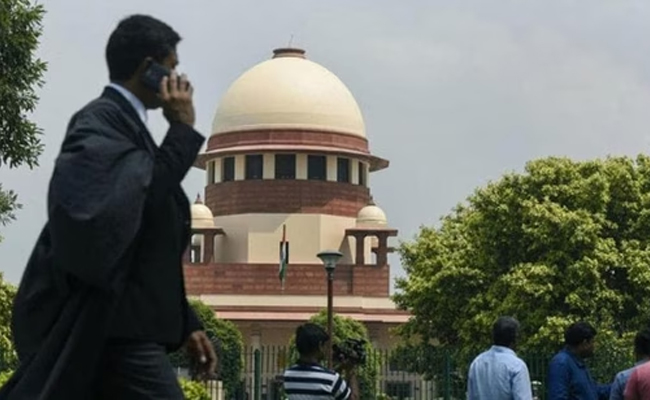Dehradun: Signboards prohibiting the entry of "non-Hindus" and hawkers have surfaced in several villages across Uttarakhand's Rudraprayag district, triggering a police investigation and raising concerns among Muslim organizations. The boards, reportedly installed outside various villages, have led to the Uttarakhand Police taking action, with local authorities working to identify those responsible for putting them up.
Uttarakhand's Director General of Police (DGP), Abhinav Kumar, confirmed that he has instructed local police and intelligence units to investigate the matter. Rudraprayag Circle Officer Prabodh Kumar Ghildiyal stated that several of these signboards have already been removed, and efforts are underway to remove others.
The text on one of the boards, found outside Nyalsu village, reads: "It is prohibited for non-Hindus/Rohingya Muslims and hawkers to do business/roam around in the village. If found anywhere in the village, punitive action will be taken." The directive was allegedly issued by the local gram sabha.
Local village heads have confirmed the presence of these boards. Pramod Singh, the pradhan of Nyalsu, claimed that the boards were installed by villagers to prevent unverified hawkers from entering the area, citing concerns over the safety of women in the village. Similar statements were made by village heads from other areas, though some retracted their initial confirmations.
The issue came to light following a meeting between Muslim delegations and DGP Kumar on September 5. The delegations expressed concerns over what they described as a rise in anti-minority incidents in the state, accusing right-wing groups of targeting the Muslim community.
Uttarakhand has witnessed communal tensions in recent years, with incidents of violence and threats against Muslim communities becoming increasingly common. The latest incident occurred in Nandanagar town, Chamoli district, where a mob attacked properties belonging to Muslims following the arrest of a Muslim man accused of inappropriate behavior. Despite assurances from local police, reports suggest that several Muslim families have fled the town due to safety concerns.
Police continue to investigate the situation, with further action expected in the coming days.
Let the Truth be known. If you read VB and like VB, please be a VB Supporter and Help us deliver the Truth to one and all.
New Delhi (PTI): Broken relationships, while emotionally distressing, do not automatically amount to abetment of suicide in the absence of intention leading to the criminal offence, the Supreme Court on Friday said.
The observations came from a bench of Justices Pankaj Mithal and Ujjal Bhuyan in a judgement, which overturned the conviction of one Kamaruddin Dastagir Sanadi by the Karnataka High Court for the offences of cheating and abetment of suicide under the IPC.
"This is a case of a broken relationship, not criminal conduct," the judgment said.
Sanadi was initially charged under Sections 417 (cheating), 306 (abetment of suicide), and 376 (rape) of the IPC.
While the trial court acquitted him of all the charges, the Karnataka High Court, on the state's appeal, convicted him of cheating and abetment of suicide, sentencing him to five years imprisonment and imposing Rs 25,000 in fine.
According to the FIR registered at the mother's instance, her 21-year-old daughter was in love with the accused for the past eight years and died by suicide in August, 2007, after he refused to keep his promise to marry.
Writing a 17-page judgement, Justice Mithal analysed the two dying declarations of the woman and noted that neither was there any allegation of a physical relationship between the couple nor there was any intentional act leading to the suicide.
The judgement therefore underlined broken relationships were emotionally distressing, but did not automatically amount to criminal offences.
"Even in cases where the victim dies by suicide, which may be as a result of cruelty meted out to her, the courts have always held that discord and differences in domestic life are quite common in society and that the commission of such an offence largely depends upon the mental state of the victim," said the apex court.
The court further said, "Surely, until and unless some guilty intention on the part of the accused is established, it is ordinarily not possible to convict him for an offence under Section 306 IPC.”
The judgement said there was no evidence to suggest that the man instigated or provoked the woman to die by suicide and underscored a mere refusal to marry, even after a long relationship, did not constitute abetment.





